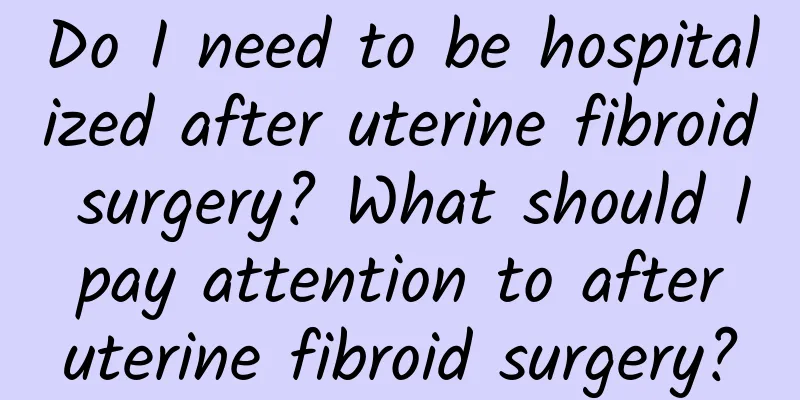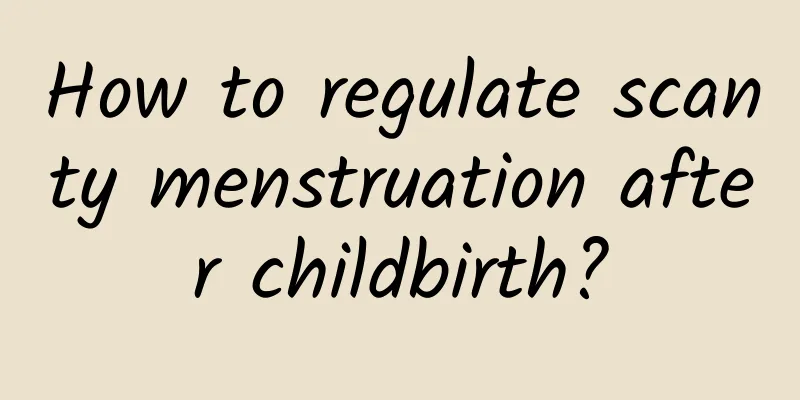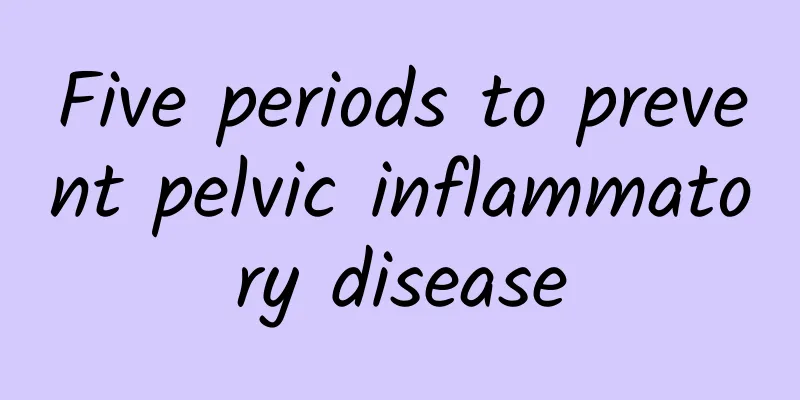Do I need to be hospitalized after uterine fibroid surgery? What should I pay attention to after uterine fibroid surgery?

|
The diagnosis of uterine fibroids is generally not difficult, but sometimes the unclear medical history or atypical physical signs can make the diagnosis difficult. So, does uterine fibroid surgery require hospitalization? What are the postoperative preventive measures? For patients who choose minimally invasive surgery to treat uterine fibroids, they usually stay in the hospital for 2-3 days, rest for 1-2 weeks, and fully recover in about 1-2 months. The specific rest method after uterine fibroid surgery varies from person to person and is related to the patient's physical condition. Postoperative precautions: 1. Mild pain usually improves on its own after a few days of rest. If the pain is significant, you need to go to the hospital and ask the doctor to eliminate the sequelae left by the anesthesia and use some medicine if necessary. 2. A few people may experience radiating pain in the lower abdomen, which may be caused by surgery. Because the uterus and bladder are adjacent to each other, such as pelvic adhesions, the uterus and bladder are removed and separated. There may be slight abrasions, which will improve after a few days. Usually, drink more boiled water, urinate immediately when you are conscious, and don't hold urine for too long. 3. A small amount of yellow or bloody discharge may be observed for a few days after 10-15 days, and then disappear naturally. If a patient with a subtotal or total hysterectomy has a lot of vaginal bleeding, it may be due to suture rupture, and the patient should go to the hospital for emergency examination immediately. 4. The abdominal wall incision should be kept dry after discharge, and a bath should be taken after one week (bathing is prohibited). Since the sutures have just been removed when you are discharged, the needle holes have not yet completely healed, and the incision scabs have not yet fallen off, it is not advisable to take a bath. Of course, the skin of the whole body still needs to be kept clean. It is best to wash the perineum every evening or at night. 5. After discharge, you should eat a light, easily digestible diet high in protein, vitamins and minerals. Eat more vegetables and fruits to keep your bowels open. Due to constipation, the vaginal stump is prone to thinning and rupture and bleeding. |
Recommend
Bacterial vaginosis can recur if not treated promptly
Nowadays, more and more people may suffer from ba...
What should be paid attention to in the treatment of bacterial vaginosis
Bacterial vaginosis causes many symptoms in patie...
Can threatened abortion be treated without surgery?
In the minds of many women, the treatment for mis...
The hazards of cervical erosion that often occur
The continuous occurrence of chronic cervicitis c...
Can abortion be performed with medical treatment after incisional pregnancy? Let’s take a look
Incisional pregnancy, also known as cesarean scar...
What are the symptoms of ovarian cysts?
Experts remind us that we should pay attention to...
Is obesity caused by excessive moisture? Zhou Zonghan: Tangerine peel, Poria cocos, and Hawthorn are three great weight loss stars for removing dampness and phlegm
Is obesity caused by too much "moisture"...
Infertility treatment 3 years after abortion
Ms. Huang, 30 years old, found out she was pregna...
Does ectopic pregnancy require uterine curettage? It depends on the woman's own situation
In life, some women do not know what the role of ...
Six common causes of dysmenorrhea in women
The causes of dysmenorrhea in women are a matter ...
How to treat ectopic pregnancy
The treatment of ectopic pregnancy is generally d...
What to do with irregular menstruation? 4 ways to check irregular menstruation
Women are called by God to lack creativity and ar...
What medicine should women use to wash chronic cervicitis? The correct way to wash chronic cervicitis in women
Chronic cervicitis can be cleaned with some exter...
What are the causes of cervicitis?
Cervicitis is a common disease among married wome...
How to choose a hospital for uterine adnexitis
In clinical practice, some women suffer from adne...









